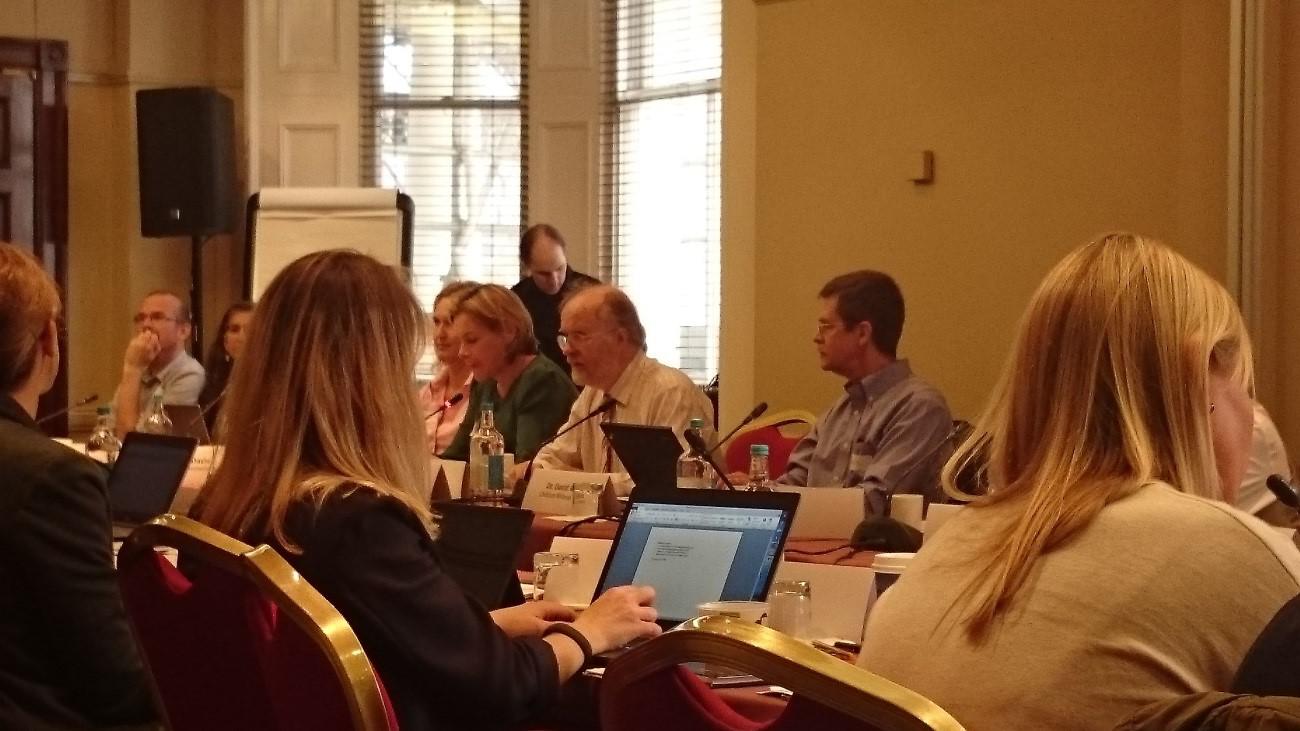WASH-NTDs Roundtable 2014: Day 1

Today SHARE has been convening a roundtable in London seeking to significantly progress collaboration, coordination and cooperation between the water, sanitation and hygiene (WASH) and many neglected tropical diseases (NTDs) sectors in the areas of mapping, data collection, monitoring and research.
SHARE Research Director, Professor Sandy Cairncross, opened the roundtable by highlighting the centrality of schools in securing sustainable behaviour change and meeting children’s health needs. We then heard from Yael Velleman of WaterAid and Matthew Freeman of Emory University that the availability of improved WASH is critical to the effective prevention, control and elimination of many NTDs. However, despite the relationship between the two sectors having long been recognised, momentum to secure concrete inter-sectoral collaboration has only recently peaked and cumulated in the Seattle roundtable on WASH and NTDs held in 2012.
Stephanie Ogden of Care summarised the Seattle roundtable, explaining that the 30 or so participants defined a common long-term vision – ‘Disease-free communities that have adequate and equitable access to water and sanitation, and that practice good hygiene’ – and collectively identified four areas of collaboration:
• Advocacy, policy and communications
• Capacity building and training
• Mapping, data collection and monitoring
• Research
The roundtable stimulated new enthusiasm and led to valuable progress in terms of this collaboration between the two sectors. For example, systematic reviews have been published on the relationship between WASH and Trachoma and WASH and Soil-Transmitted Helminths, a Global Trachoma Mapping System which also captures WASH data has been launched, and a WASH and NTDs e-course has been established.
However, there is still progress to be made, and this is where the SHARE-funded 2014 London roundtable comes in. In recognition of the fact that WASH is still not adequately reflected in the targets and approaches of NTD programmes, today, nearly 40 key individuals from research, advocacy, policy, monitoring and capacity building backgrounds came together ready to determine and commit to concrete actions that the they, their organisations and the WASH and NTDs sectors at large will take to rectify this.
Discussions today, facilitated by Barbara Evans, Associate Professor in Water and Environmental Engineering at the University of Leeds and Chair of the UN JMP’s Strategic Advisory Group, centred on developing a core set of indicators that would support collaboration between the WASH and NTDs sectors. Much brainstorming took place on the value of existing WASH/NTD indicators, gaps in current monitoring mechanisms/indicators, and what indicators would best fill these gaps.
Fruitful plenary discussions led to indicators being proposed for each of the water, sanitation and hygiene components of WASH. The hygiene indicators proposed for example included:
1. Proportion of people hand washing at key times with soap or ash
2. Proportion of children with clean faces through proper washing
3. Proportion of people regularly practice personal hygiene in non-surface water
4. Proportion of people who wear appropriate footwear
5. Proportion of compounds that are clean, i.e. open defecation free
6. Proportion of people with sufficient knowledge about hygiene practices
The day concluded with Bruce Gordon of the World Health Organization (WHO) confirming that WASH and NTDs are an emerging priority for WHO. This was a wonderful note on which to end day one and we will return refreshed tomorrow to establish concrete actions and work plans for coming years. Watch this space and follow @SHAREresearch on Twitter for updates!
Catch up on Day 2 here.
